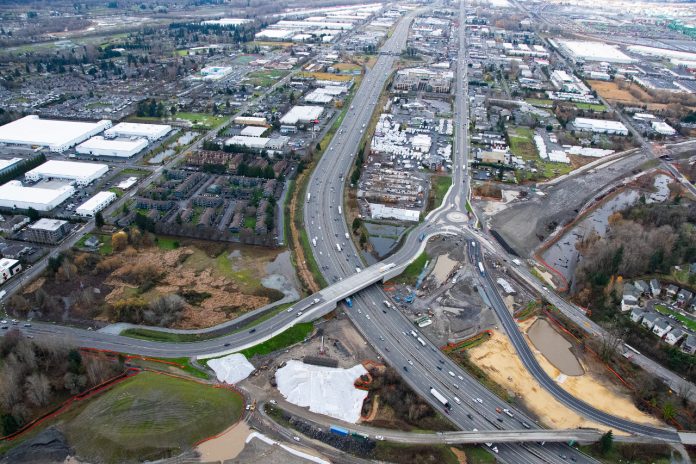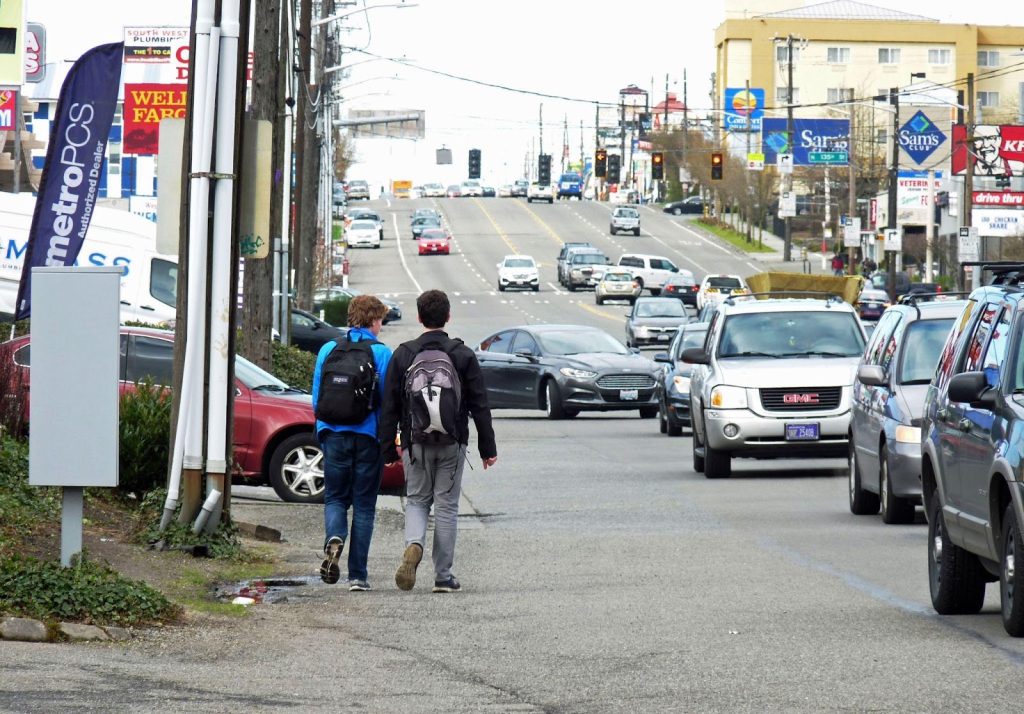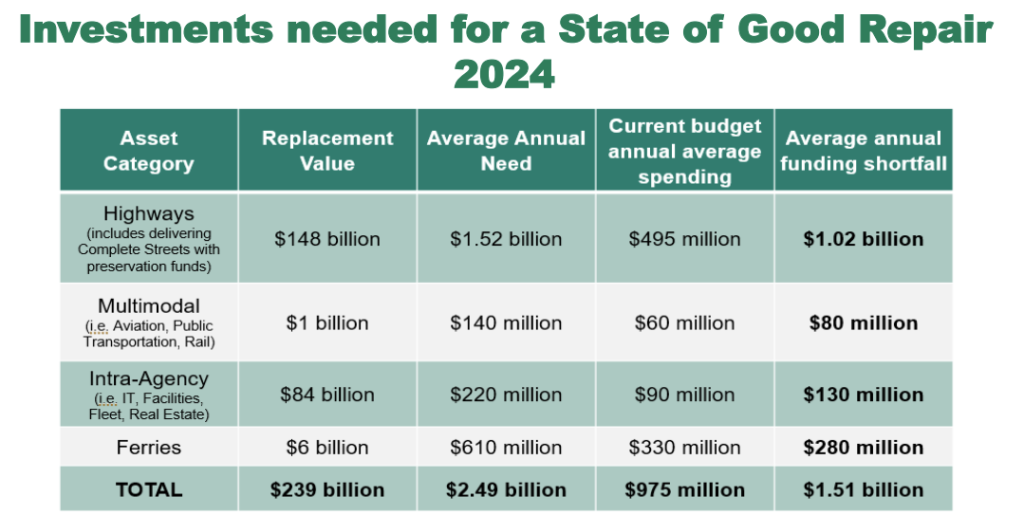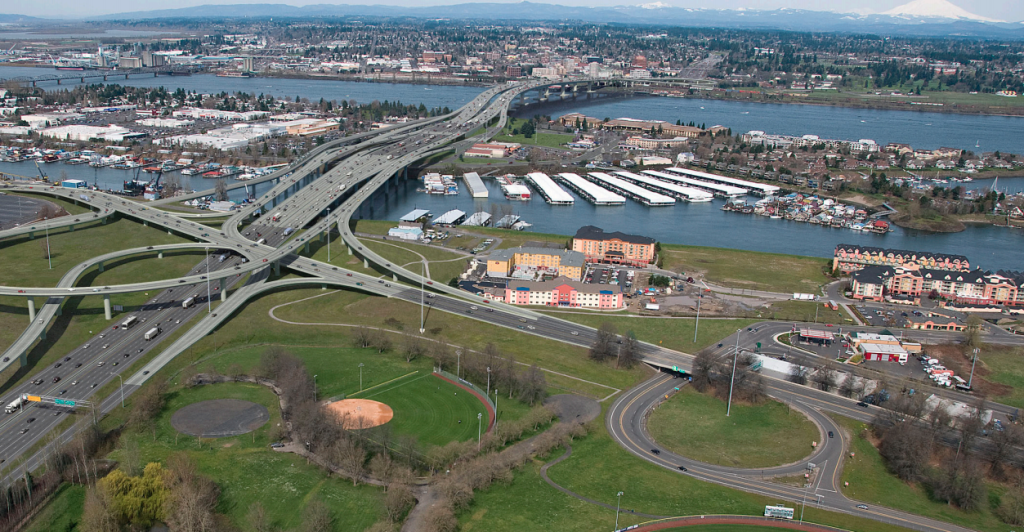
America Walks, the national pedestrian advocacy organization led by former Seattle Mayor Mike McGinn, has launched a new campaign calling on policymakers at all levels of government to rethink their plans for highway expansion and instead invest dollars in repairing and maintaining existing infrastructure and creating cohesive communities. They’ve gotten around 200 transportation advocacy organizations from across the country to assist them in making that ask, with The Urbanist among the Washington State groups who have joined the call.
“We call on our leaders in government to adopt a moratorium on expanding highways and a pause on existing projects until climate, equity, and maintenance goals are met,” the full call to action states. “The highway system we have built in our country is unsustainable, both financially and environmentally, and disproportionately harms low-income and Black and brown communities. We need to remedy these problems with a responsible approach to transportation that centers on community.”
Other Washington organizations joining the campaign include Transportation Choices Coalition, Move Redmond, and Lid I-5.
The four pillars of the campaign are:
- Fix It First: maintain existing roads and bridges before building new, larger ones.
- Safety Over Speed: retrofit dangerous roads and streets to make them safer for people walking, biking, and driving.
- Make Transit Work: provide capital and operations funding for reliable, affordable public transportation that connects people to jobs, services, amenities, health care, and each other.
- Reconnect Communities: dismantle targeted highways and invest in the communities around them to increase opportunity and redress the harms these projects have inflicted.
In Washington, even as the state legislature has adopted climate legislation that would be a pipe dream in many conservative states, in the form of the Climate Commitment Act and the Clean Fuel Standard, the new highway projects continue to dominate the state transportation budget. From the North Spokane Corridor to I-405 expansion to extensions of SR 509 and SR 167, the state highway network is set to keep growing in service of a desire to improve traffic flow even as the maintenance backlog on existing infrastructure continues to grow.

According to the Washington State Department of Transportation, the state is currently just over $1 billion short of what it needs to spend every single year to keep up with highway maintenance needs, a figure that grows to $1.5 billion when we include the entire transportation system including ferries, aviation and rail.

In January, WSDOT Secretary Roger Millar told the Senate’s transportation committee that if the legislature ramped up maintenance funding starting with the current biennium, it would take 19 years to be able to get to a full state of good repair across the entire state highway system, during which time some infrastructure would almost certainly fail and require additional emergency funding.
A more modest increase in maintenance funding could mean anywhere from 29 to 32 years to get to a place where all of the infrastructure within the state highway system is maintained adequately. Yet this session, cost increases on existing highway expansion projects that have led to funding gaps look to soak up badly needed maintenance dollars.
Thanks to 2022’s Move Ahead Washington transportation package, maintenance dollars are safety dollars, with any planned highway repairs over $500,000 required to evaluate whether a highway facility needs to have bike and pedestrian infrastructure and whether it needs to infrastructure in place to reduce actual speeds to design speeds. And yet, with maintenance needs continuing to be underfunded, the state is not adequately responding to the intense need for additional safety infrastructure on the state’s highways, where approximately half of the state’s traffic fatalities occur annually.

At the federal level, dollars from 2021’s Infrastructure Investment and Jobs Act (IIJA) have gone toward the state’s maintenance needs, but also helped to provide matching dollars for new highway projects. As originally reported by Crosscut, $630 million from the IIJA went toward keeping bridges across the entire state in a state of good repair, even as the total number of bridges in poor condition actually increased.
Meanwhile, $600 million for the Interstate Bridge Replacement, which will expand I-5 between Washington and Oregon while turning the highway into an even larger barrier in the middle of downtown Vancouver, Washington, is only the first federal grant that the megaproject expects to receive before it can start construction.

“Community-first infrastructure means increasing frequent, reliable, and accessible public transportation,” America Walks notes. “It means investing in policies that build homes close to jobs and amenities. It means providing clean air and water and making neighborhoods healthier, quieter, and safer. It means fostering small businesses and creating places for people to gather.”
America Walks has created a direct contact form allowing you to let your state and federal representatives know that you support shifting away from the era of endless highway expansion and toward that era of community-first infrastructure.
Ryan Packer has been writing for The Urbanist since 2015, and currently reports full-time as Contributing Editor. Their beats are transportation, land use, public space, traffic safety, and obscure community meetings. Packer has also reported for other regional outlets including BikePortland, Seattle Met, and PubliCola. They live in the Capitol Hill neighborhood of Seattle.

